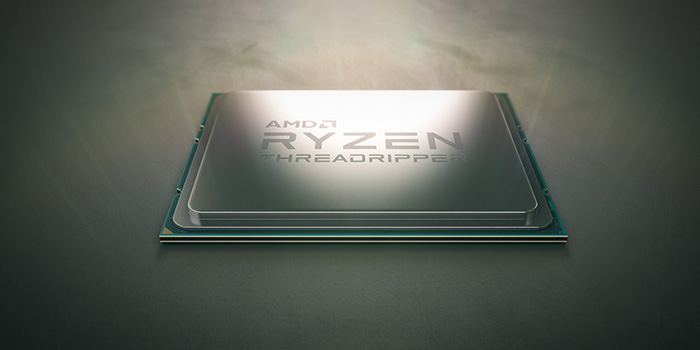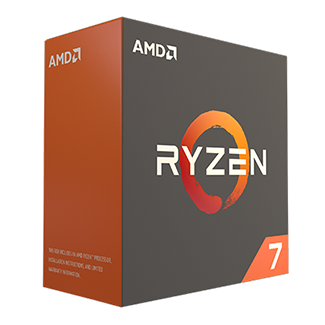Our Aim
To provide you with an overview on New And existing technologies, hopefully helping you understand the changes in the technology. Together with the overviews we hope to bring topical issues to light from a series of independent reviewers saving you the time And hassle of fact finding over the web.
We will over time provide you with quality content which you can browse and subscribe to at your leisure.
TekSpek 's

AMD Ryzen Processors
Date issued:
AMD Ryzen Processors
If you subscribe to the belief that competition in the marketplace is good for consumers, you should have March 2nd 2017 circled in your diary. This is the day that AMD finally unleashes its eagerly anticipated range of Ryzen CPUs.

Built from the ground-up, Ryzen first comes to market as a 14nm chip based on the brand-new Zen architecture. Having been in development for many years, Zen is seen as a potential watershed moment for AMD, with many hoping and believing that the firm's latest and greatest architecture will provide a stern challenge to Intel's dominant Core processors.
A Clean Slate
No pressure, then, yet Zen appears to have what it takes to at least pose a threat to Intel's muscle. Literally scrapping the Bulldozer and Excavator cores that came before it, Zen starts afresh in its effort to bring AMD up to speed. With this in mind, and borrowing liberally from the Intel playback, the Zen architecture offers improved branch prediction and increased IPC (instructions per clock) courtesy of a range of under-the-hood enhancements.
The upgrades include a new op-cache buffer, allowing Zen to fetch and decode four instructions per clock cycle with greater efficiency, the number of ALUs (arithmetic logic units) per thread has doubled from two to four, and wider queues allowing more instructions to be loaded and retired than ever before. For the first time, AMD also includes true support for SMT (simultaneous muti-threading), putting Ryzen on a level playing field with Intel's hyper-threaded chips.
In addition to the various core improvements, Zen's L1 and L2 caches have been granted a generous speed increase, while the L3 cache is said to offer a 5x performance improvement over incumbent Bulldozer. Knitting together the innovative cores and quicker cache is a proprietary interconnect dubbed Infinity Fabric, and with AMD integrating the memory controller and PCIe routing, we have the makings of a potent CPU.
Ensuring the goodness of the new architecture is put to good use, each Ryzen CPU will be equipped with almost a thousand sensors whose job it is to modulate performance and get the best out of the processor. One new technology, dubbed Precision Boost, offers on-the-fly tuning of the CPU in 25MHz increments, while another new addition, XFR (Extended Frequency Range), enables higher frequencies above the Precision Boost limits when better cooling is available. Think of this as similar to Turbo frequencies on a graphics card, where the actual operating speed remains something of a lottery, but is almost guaranteed to be higher with a larger heatsink or liquid cooling.
The Chips and Chipsets
AMD Ryzen CPUs are without a doubt, AMD's most impressive showing to date, and the initial trio of processors arriving at retail are high-end solutions touting no less than eight cores and 16 threads. Here's how the range stacks up:
AMD Ryzen 7 Processor Comparison |
|||||||||||
|---|---|---|---|---|---|---|---|---|---|---|---|
| Cores / Threads | Transistors | Cache | TDP | Base Clock | Turbo Clock | XFR | Memory | Factor | Supplied Cooler | Price | |
| Ryzen 7 1800X | 8 / 16 | 4.8bn | 20MB | 95W | 3.6GHz | 4.0GHz | Yes | DDR4-2666 | AM4 | - | £490 |
| Ryzen 7 1700X | 8 / 16 | 4.8bn | 20MB | 95W | 3.4GHz | 3.8GHz | Yes | DDR4-2666 | AM4 | - | £390 |
| Ryzen 7 1700 | 8 / 16 | 4.8bn | 20MB | 65W | 3.0GHz | 3.7GHz | No | DDR4-2666 | AM4 | Wraith Spire | £320 |
All three Ryzen processors are built on the same 14nm processor and incorporate a whopping 4.8bn transistors, and each makes use of the new AM4 socket that AMD promises will be in use for at least another generation of Zen products.
Absorbing the specification of the three chips is a bit of an eye-opener, as AMD has in recent years been forced to play in the value segment with low-cost chips aimed at the masses. The Ryzen 7 1800X, at £490, is a different breed entirely and takes the fight to Intel's best CPUs with 16 threads, a 4GHz turbo clock, support for XFR and DDR4 memory, all served in a tidy 95W package. To put the price point in perspective, the equivalent eight-core, 16-thread Intel processor - Core i7-6900K - is today selling for just over £1,000.
Yet the chip alone doesn't tell the full story. AMD's previous-generation processors have been stifled by out-of-date chipsets and motherboards that don't offer the mod-cons enthusiast users now come to expect. That changes with the move to AM4, with three new chipsets - X370, B350 and A320 - arriving for the enthusiast, mainstream and essential audiences. All three offer USB 3.1 Gen 2 and multiple SATA, but X370 is the stand-out choice for gamers courtesy of multi-GPU support.
A New Level of AMD Performance
Benchmarks from leading review sites have shown that, while Ryzen delivers respectable single-thread performance, the chip truly excels under multi-threaded workloads.

Crunching numbers in a single-threaded PiFast examination reveals that AMD continues to trail Intel with regards to IPC. Ryzen serves as a massive improvement over the previous-generation FX-9590, yet the range-topping Ryzen 7 1800X can't keep up with an Intel Core i3 processor in a single-thread race.

But look what happens when all the cores are called into action. Cinebench, a multi-threaded test, puts every thread to work and the AMD Ryzen 7 1800X is allowed to strut its stuff. The AMD chip leaps ahead of the Core i7-6900K, which remember costs over twice as much, and isn't far behind Intel's 10-core beast, the Core i7-6950X. Put another way, Ryzen is 125 per cent quicker than the fastest AMD chip from the soon-to-be-retired FX stable.
Summary
Putting together a new PC has just become a little bit more difficult, as AMD has become a genuine contender in the CPU space. True, Intel still holds sway with superior IPC performance, yet Ryzen has closed the gap, and with AMD offering eight cores and 16 threads from as little as £320, enthusiasts and power users need to consider how valuable such lofty multi-core performance could be in their everyday workloads.
These are exciting times for PC aficionados, and with AMD pushing more cores at attractive price points, it may well be time for the industry to optimise for a many-core future.

The entire range of AMD Ryzen processors and gaming PCs are available to purchase here at Scan Computers.